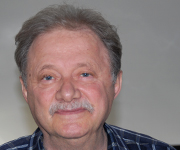IS the role of doctors and their place in the health care system still clear in the 21st century?
A century ago the role of doctors was clear and simple, as outlined in the 1907 book Modern medicine: its theory and practice, in original contributions by American and foreign authors, edited by Sir William Osler and Thomas McCrae.
It described the role of doctors as acquiring “facility in the art of diagnosis”, growing in clinical judgement and appreciating the relative value of symptoms and the physical signs. Doctors gave “the patient and his friends a forecast or prognosis” and provided treatment so “the patient may be restored to health … or failing that be given the greatest possible measure of relief”.
A century ago it was the age of acute care and doctors accounted for about one in three health professionals. In the 21st century, doctors account for about one in every eight workers in the Australian health care sector. Significantly, medicine’s focus has moved beyond acute to preventive health care and the support of an ageing postwar generation who are living longer.
Modern health care requires the skills of not only doctors and nurses but an ever-increasing cohort of health professionals, all jostling for recognition by Australian Health Practitioner Regulation Agency.
In short, we have witnessed a cavalcade of other professionals assuming key aspects of the doctor’s roles in diagnosis, prognosis and management. And, as a consequence, such developments have confused, diminished and blurred the roles of doctors.
This progressive and ongoing crisis of professional identity has spawned movements to redefine the role for the new millennium.
The Canadian Medical Association has been the leader in this field. In 2000 it released a policy statement titled “The future of medicine” that defined the role of doctors as medical expert and healer, enriched with other roles of the professional — communicator, scholar, collaborator, advocate and manager. Although no doctor will function in all these roles simultaneously, doctors should have competencies to participate in each of them, as circumstances require.
Belatedly, in April this year, the Australian Medical Association released its position statement on the role of the doctor.
It covers trust and the patient-doctor relationship; diagnosis and prognosis; complex decision making; a multidisciplinary approach to health care; professionalism, leadership; training; and medical education and training.
Although the enduring importance of these enunciations on the role of doctors may be debatable, doctors have a clear choice — will they lead or be led by other organised health professionals?
Given the extent of splintering and supreme individualism in our profession, I fear that it is increasingly becoming the follower rather than the leader in health care.
Dr Martin Van Der Weyden is emeritus editor of the MJA.
Posted 22 August 2011

 more_vert
more_vert
As so often has been the case over the years, you are eerily insightful in your conclusion Martin. The irony though is that to be a leader, one has to be strongly individualistic.
The problem is now two-fold. We, the profession, have been reduced by those in charge of the purse-strings to being of only token importance, demeaned to the status of a signature on a request, referral or certificate. We have allowed ourselves to become just the final fall-guy legally when something has gone wrong.
We have also become lazy, complacent, selfish… whatever you want to call it as a profession… and left the ‘leadership responsibilities’ fall to a transient few within the profession.
The virtual contempt with which the AMA has been held over the last few years by our current Federal government is only just the beginning. The tokenism displayed by state Health toward our state organisations is clear confirmation of our “status” as a profession.
What now? Who knows! The fate of our profession is now firmly in the hands of others.